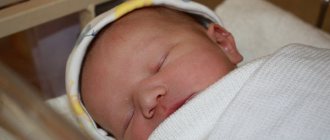From birth, the baby needs frequent feeding and constant replenishment of energy reserves. The baby wakes every two to three hours to feed.
As the year approaches, the duration of night rest increases. Young parents are interested in how much sleep a baby should have at 11 months.
Main components of the routine
The daily routine of an 11-month-old baby is practically no different from that of a 10-month-old child. And the same principles can be maintained at 12 months, if parents and child are comfortable. Changes may only affect the frequency and duration of sleep, as well as entertainment and nutrition (slightly).
The schedule includes the following mandatory components:
- Nutrition. Parents should pay attention to the diet, frequency of meals and portion sizes.
- Sleep is an important component of the regime. The child should get full sleep at night and rest to recuperate during the day. An 11 month old baby can sleep once or twice.
- Hygiene is an integral part of life. Parents monitor the baby's hygiene.
- Games and activities are necessary for harmonious, timely and comprehensive development, so attention should also be paid to this component.
- Walks. A child needs fresh air.
These components must be present in the regimen of any eleven-month-old child, and they are combined and alternated throughout the day.
Table
Below is a table by hour showing the approximate daily routine of an 11-month-old baby who sleeps twice during the day:
| Time periods | Classes |
| From 6 o'clock to 6:30 am | Waking up and morning hygiene (diaper changing) |
| From 6:30 am to 6:45 am | Morning feeding with either breast milk or formula |
| From 6:45 to 8:30 | Gymnastics, as well as carrying out mandatory hygiene procedures: washing, brushing teeth, combing |
| From 8:30 to 9:00 | Breakfast |
| From 9 am to 10:00 | Games or activities, getting ready for a walk. |
| From 10 a.m. to 11:30 a.m. | Walk |
| From 11:30 to 13 pm | First day rest |
| From 13:00 to 13:30 | Dinner |
| From 13:30 to 15:30 | Active games, entertainment, activities |
| From 15:30 to 16 hours | Afternoon snack and getting ready for bed |
| From 16:00 to 18:00 | Second day rest |
| From 18:00 to 18:30 | Communication |
| From 18:30 to 19 pm | Dinner |
| From 19:00 to 20:00 | Walk or indoor games |
| From 20:00 to 20:30 | Quiet activities such as reading |
| From 20:30 to 21 hours | Preparing for night sleep with bathing and brushing teeth, feeding formula or milk as needed |
| From 21 to 6 am | A good night's sleep |
If your eleven-month-old baby sleeps once during the day, then his daily routine will be as follows:
| Time periods | Classes |
| From 6 a.m. to 6:30 a.m. | Waking up, changing diaper |
| From 6:30 to 6:45 | First feeding with either breast milk or formula |
| From 6:45 to 8:30 | Hygiene procedures (washing, brushing teeth, combing) and performing gymnastics |
| From 8:30 to 9 am | Breakfast |
| From 9 a.m. to 10:30 a.m. | Exercises at home and packing for walks |
| From 10:30 to 12 noon | Walk in the fresh air |
| From 12 to 13 noon | Communication, homework |
| From 13:00 to 13:30 | Dinner |
| From 13:30 to 16:30 | The only daytime nap |
| From 16:30 to 17 hours | Wake up, afternoon snack |
| From 17:00 to 18:30 | Games at home |
| From 18:30 to 19 pm | Dinner |
| From 19:00 to 20:00 | Second walk |
| From 20:00 to 20:30 | Calm activities at home |
| From 20:30 to 21 hours | Preparing for night sleep, bathing with brushing teeth, feeding with milk or formula (if necessary) |
| From 21 o'clock to 6 am | Night sleep |
The time intervals indicated in the table are approximate. When creating a daily routine, take into account the individual characteristics of your 11-month-old child.
Prerequisites for sleep disorders in children under one year of age
The need to sleep is inherent in a person by his body - internal biorhythms indicate when to fall asleep and get up. Doctors say a healthy, full night's rest is vital, especially for young children.
Physiology
Poor sleep in a child from birth to one year is due to a number of physiological or psychological reasons. The first include:
- Problems with the nervous system. They occur when illnesses appear in the mother in the last trimester or during childbirth. Sleep disturbances will begin due to hypoxia or infection of the fetus.
- Lactose intolerance. Colic or bloating will not allow the baby to fall asleep - the intestines cannot break down milk sugar, causing disturbances in the microflora, creating painful sensations.
- Congenital features of the child's anatomy. Young children often experience narrow nasal passages. During development, the nasopharynx will change, which will relieve the baby from unpleasant sensations. Serious measures (surgery) are rarely achieved. If it is needed, the ENT specialist will definitely point it out.
- Reflexes. Having reached six months of age, the baby begins to sit down and stand on its own legs. Sometimes this happens sharply and suddenly, causing the baby to wake up. In this case, particularly active children should be protected from stimulating factors before bedtime and replaced with quiet games.
It is important to know! Poor sleep can be one of the symptoms of the disease. It is also necessary to pay attention to whether the child is sweating (back of the head, forehead, palms, feet, back). In this case, visit your doctor immediately.
Psychological imbalance
Psychological reasons for restless rest include:
- Temperament. Calm children often sleep better than active ones. Easily excitable children spend less time sleeping: they often cry at night and do not rest well.
- Peculiarities of the psyche of young children. Unmet children's needs, such as food, warmth, can wake up the baby. This is also affected by discomfort caused by a wet diaper, an uncomfortable or hard diaper. At about 10-11 months, the child begins to understand and evaluate the psychological situation: if he doesn’t like it, he can forget about a good night’s sleep.
- Eating behavior. The baby wakes up and demands food, which is why the opportunity to sleep will be noticeably reduced. The mother needs to gradually reduce the number of nighttime meals the baby eats, so that sleep is not associated with feeding.
We recommend reading: Where to put your head to sleep: traditional and scientific ideas
A child may also have trouble sleeping because of parents who are concerned that the child is disrupting his eating or walking schedule. Why wake up the baby? Because “necessary”? Each child is individual; setting rigid boundaries is pointless. Let his daily routine build itself; mom and dad can only correct certain phenomena that are unhealthy.
The problems described above are temporary, they go away when the baby grows up. You should only seek help if you have serious sleep disturbances.
Signs of restless sleep
When a baby doesn't sleep well, it manifests itself in frequent awakenings. He tosses and turns in his crib, unable to find a place for himself. Problematic rest, accompanied by sweating, can be expressed in the fact that the baby will crawl with a sweaty part of the body - in an attempt to eliminate the discomfort, he rubs his head or palms on the sheet.
It is worth considering how much a child cries when waking up. Usually he calms down as soon as he gets what he wants (he sees his mother, is held in her arms, eats, drinks water). But sometimes, due to pathology, the baby begins to dramatize - crying resembles true suffering, the baby is irritated. It is difficult to calm him down; it will only be possible for a short time, and then a new, even greater, storm of emotions and indignation will begin.
Is there a difference in the daily routine of infants and artificial infants?
The daily routine during artificial feeding does not differ from the routine during lactation. The mother offers the bottle-fed baby a bottle of ready-made formula, and gives the baby the breast.
The daily routine while breastfeeding may have some peculiarities. Thus, a baby may require the breast quite often: during times of anxiety, illness, or during teething. During such difficult periods, the mother can give breast milk at the request of the baby. Feedings can be unscheduled and long-term, so they may change the routine somewhat. But on normal days, breastfeeding should be offered approximately the same number of times as the artificial infant receives formula. At 11 months of age, the diet is enriched with various foods, and the volume of breast milk is not so large.
Climb
It occurs between 6 and 8-9 o'clock in the morning. Before this, the baby may have several night awakenings, which depend on the type of feeding and the mother’s future plans.
If the family is determined to feed until self-weaning, then such awakenings still serve an important function. According to WHO research, the largest part of prolactin production occurs in the pre-dawn hours, so the method of self-regulation of milk quantity should not be radically changed by rocking the baby to sleep or offering him water.
If there is a gradual shift away from breastfeeding, then, on the contrary, it is worth gently but persistently getting rid of night wakings.
Dream
At 11 months, a child sleeps about 13-14 hours a day. Night sleep lasts 9-10 hours and daytime rest lasts about 3-4. At this age, the baby can rest during daylight hours either once or twice. When determining the multiplicity, analyze the readiness and development of the nervous system of a particular child. If he is very tired in the morning and begins to be capricious, put him to bed twice. If the baby calmly stands until lunch and does not show signs of fatigue, then one day's rest is enough for him.
Laying plays an important role. If you rock your baby, you can gradually wean him off it, replacing rocking with stroking, singing lullabies, sitting next to him or calm conversations. And going to bed at night should be accompanied by a ritual - a clear sequence of actions. This ritual promotes a sense of calm and may include bathing, singing a lullaby or reading a book, quiet conversation, hugs and kisses.
Some mothers of 11-month-olds practice co-sleeping, and it is acceptable as long as it is acceptable, convenient, comfortable and safe for everyone. Otherwise, the baby should sleep in his own crib, which is currently in the parent’s bedroom.
Important! To ensure that your child sleeps soundly and peacefully, arrange a comfortable place to sleep. The crib should be spacious and safe, without unnecessary parts and objects, without a pillow and with a mattress. The room is quite dark, quiet, not stuffy and cool (about 22 degrees Celsius).
Causes of poor sleep
It is not necessary to strictly adhere to children's sleep norms; it is necessary to monitor their physical needs. It often happens that the baby sleeps too little, which causes him to cry a lot and be capricious.
Possible causes of poor sleep:
- Difficulty falling asleep associated with increased nervous excitability. If the baby has experienced severe stress during the day, then he will sleep restlessly, often wake up and cry. Vivid positive emotions during the bedtime process (a new toy, outdoor games) can overexcite the baby and prevent him from falling asleep.
- The baby may not get tired and not waste the energy that has accumulated in him.
- There is often confusion between day and night - internal biorhythms get lost.
- The baby may experience physical discomfort (he is too hot or cold, uncomfortable clothes, synthetic bedding).
- Teething or colic.
It should be remembered that in case of severe violation of the regime, you should definitely contact your pediatrician.
Nutrition
At 11 months of age, meals are five times a day or six times a day if the mother offers the baby breast milk or formula at night. The intervals between feedings are 3-4 hours. The volume of one serving can be individually determined by the baby’s weight, dividing his body weight in kilograms by 8 or 9. So, if a child weighs 10 kg, then he should consume 1100-1250 grams of food per day. The baby's diet already includes many foods. Let's consider the main components of the menu and their daily volumes:
- Formula or breast milk - 300 to 400 ml.
- Milk porridge or dairy-free – 200 g.
- Vegetables in the form of soups or purees – 200 g.
- Fruits (usually in the form of puree) – 100-110 g.
- Fruit juice – 90-100 ml.
- Vegetable oil – teaspoon (5 ml).
- Butter – 5 grams.
- Meat purees – 60-70 grams.
- Fish puree – 50 g.
- Wheat bread - a small five-gram piece.
- Children's crackers, cookies – 10 g.
- Kefir – 100 ml (half a glass).
- Cottage cheese – 40-50 grams.
- Egg yolk – half.
Let's look at a sample menu for 11 months of age in the table:
| Eating | Dishes |
| Breakfast | Porridge, baby cookies, water |
| Dinner | Vegetable puree or soup, meat puree, some bread and some juice |
| Afternoon snack | Kefir and cookies or cottage cheese and fruit puree |
| Dinner | Vegetable puree, fish puree, compote or fruit drink |
At 11 months, you can begin to develop the chewing reflex in your child. Offer him not homogeneous purees, but those with small inclusions of products. Vegetables can also be served in small pieces after heat treatment (steaming, stewing), for example, in the form of soups or stews. Soft fruits can be finely chopped. Do not dissolve cookies in milk.
An 11-month-old baby can be taught to use a spoon. Purchase a special safe children's device of a special shape that is as comfortable as possible for the child. The plate can be fixed on the table top of the high chair to prevent it from tipping over.
Some babies at 11 months continue to eat at night. This is normal and depends on the characteristics of the child. Still, you should offer your baby breast or formula no more than once, but it is better to replace milk with water or refuse feeding altogether and instead of eating, just try to soothe and put the baby to sleep.
The menus for infants and artificial babies are no different. But a baby who is bottle-fed receives formula milk, and a baby who is fed breast milk is given breastfeeding. The volumes of formula and breast milk are approximately the same. The method of feeding does not affect the main components of the diet in any way.
If your baby eats only the breast and refuses other foods, offer foods carefully, without forcing. Give something new before breastfeeding while baby is hungry. Most likely, the baby is not yet ready for an adult diet; he needs more time than other children.
How do you know when it's time to go to bed?
To prevent daily bedtime from turning into a real and very painful “execution”, both for parents and for their precious child, as already mentioned, you need to focus on the temperament and individual character traits of the little man. Every child should ideally sleep according to biorhythms, so the mother’s first priority is to organize the correct feeding, sleep and wakefulness regime, which will help determine when exactly to go to bed. When an 11-month-old baby is “almost” asleep, he acts like all children - he becomes lethargic, capricious, yawns and constantly rubs his eyes. It is important not to miss the key moment of the “I want to go to bed” stage, otherwise you will have problems falling asleep.
Massage in the form of stroking will help to relax the child's body and set it up for a comfortable sleep - first on the tummy, then on the back. You can sing a quiet, calm lullaby, or turn on soothing music. Don’t wrap your baby up too much, following the principle: “When he gets warm, he falls asleep.” An unformed organism exhibits noticeable sensitivity to overheating. Also refrain from stimulating games before bed.
Games and activities for development
Activities and games should help the baby develop, explore the world and release energy. As active games, you can use a ball, a tolokar, various gurneys, and dancing to rhythmic music. For educational activities, sorters, pyramids, educational toys, and safe soft cubes are suitable. Be sure to read to your baby and show him pictures in books so that he recognizes and remembers the names of different objects, plants, animals and insects. Play mats and complexes are useful. Also develop fine motor skills with lacing, special toys with beads, buttons, and different textures.
Advice! Demonstrate and describe different actions to your baby so that he knows and repeats them.
At home, during quiet activities, you can communicate with an 11-month-old child, pronounce your actions for him, show and name various household objects, sing, tell poems or fairy tales. You can also purchase safe play dough and finger paints, but always supervise your baby’s actions during such activities.
Signs of fatigue
Carefully monitor the condition of your 11-month-old baby. If he refuses to rest during the day, often cries and has difficulty falling asleep in the evening, we can talk about the accumulation of fatigue. There are other signs when the baby’s body signals fatigue:
- the baby rubs his eyes and yawns, but cannot fall asleep for a long time;
- the baby becomes hysterical, not wanting to fall asleep. In addition, he may cry and struggle.
The optimal time to fall asleep is considered to be from 15 to 20 minutes. The task of parents is to help their infant sleep normally and also avoid restless dreams.
Walks
Walks are useful for development, during which the child must communicate and learn to interact with other children, examine and explore the world, and explore various objects on the street.
It is better to go for walks when the baby is alert and healthy. In case of elevated body temperature and cough, it is better to cancel the event. And with a slight runny nose, walking is not prohibited and is even useful.
If the weather turns bad, it is better to stay home. You should not walk in the rain, strong wind and frost below -15 degrees. And be sure to dress your child according to the weather so that he does not sweat or freeze.
Sweet dream of a 10 month old baby
- Signals that the baby gives when he wants to sleep:
- How much sleep at night?
- How much should a 10 month old baby sleep?
- Approximate feeding schedule for a 10 month old baby - table
What has the baby managed to master and what has he learned during this time?
The child sits independently without support, stands confidently on his legs with support, actively crawls, can easily grasp objects of any shape in his hands and easily grabs a small object with two fingers or, as pediatricians also call it, grasping with tweezers. During this period, you need to pay special attention to the baby and look after him, remove all objects that are dangerous to him from the playing area. The child is very mobile, but still cannot maintain balance
Strict control over your child will help you prevent injury to the child, especially dangerous at an early age - head injury. At the same time, children need to be taught how to properly get off the sofa or bed. Show several times a day (to successfully consolidate the skill) how to properly get down from a chair or sofa - first you need to lie on your tummy, then slide on the edge of the sofa - lower your legs down. At ten months, the baby begins to give preference to one - the dominant arm. You can determine whether your child is left-handed or right-handed. The development of the body is in full swing.
List of sources
- www.tikitoki.ru
- sonsladok.ru
- zdorovo.live
- yazdorov.win
Hygiene and gymnastics
Hygiene for an 11-month-old baby includes regular morning and evening brushing, combing, morning washing and bathing. You can bathe your baby in a baby bath or in an adult bath, in a special seat. Don't leave your baby one step! Offer him bath toys. Water temperature is about 35 degrees.
You need to wash your baby carefully so that he is not afraid of this procedure and does not feel disgusted by it. Avoid getting water into your ears and eyes. Set your own example by washing your face in front of your daughter or son.
Important! Also, after coming from outside and before eating, you need to wash your hands.
Gymnastics should be simple. Together with your baby you can spin, bend over, squat, sit down and stand up, wave your arms, crawl, roll over from back to stomach and back. Show all the movements to the baby. It is also useful to do massage during gymnastics: bend and unbend your legs and arms, gently massage your stomach, back, neck and limbs.
What to do if you cry at night?
If at night an 11-month-old baby not only sleeps poorly, but also cries pitifully, it is absolutely impossible not to approach him - he must feel that his parents are nearby and will always come to the rescue, he must learn to trust his family and friends. The main task of adults in this situation is to do everything so that the child returns to sleep just at the moment when they come to his call. How to do it?
- Wait a few minutes before approaching the crib. During this time, nothing bad will happen to your child, but the child will improve the skill of falling asleep independently. Put your own fears aside: just move the crib further away or lower the volume of the baby monitor. When the baby is really feeling bad and she needs you, believe me, you will know about it.
- Does your baby not calm down for a long period of time? Try to completely eliminate all factors of possible disturbance for him: extraneous noise, too bright light, unfavorable temperature conditions (hot/cold), dirty diaper and teething.
- Solve children's problems as quickly as possible so as not to wake up the baby even more. You can pick it up, but it’s not advisable to do it too often. Replace the next “bastards” with gentle stroking on the back or tummy, conversation, and reassurance.
We recommend reading: Sleeping pills in ampoules with and without a prescription, injections for insomnia
Skills of an 11 month old baby
What should a child be able to do at 11 months:
- stand up and sit down without falling;
- change positions;
- sit without support and bend over from a sitting position;
- stand or take the first steps (with support or independently);
- recognize relatives and respond to them;
- show different emotions;
- fulfill the simplest requests (go, give, take);
- point at objects with a finger;
- hold a spoon, try to use it;
- try to copy adults, animals;
- pronounce syllables or simple words;
- have preferences (favorite toys or foods);
- be aware of blame and praise;
- change facial expressions, intonation;
- try to dance to music;
- "mumble" in your own language.
This list is approximate; for a particular child it may be less or more. Development is an individual process.
How to organize your waking time
The main elements of a young child’s regime are:
- walks;
- bathing;
- gymnastics and massage;
- developmental activities.
Bathing
Water procedures will help your baby wake up in the morning and cheer up: a light shower or wash. Swimming will bring many benefits before bed: it will relax you and set you up for rest. If the child does not have allergies, you can add special baby products with a calming effect to the water - decoctions of herbal preparations or individual dried plants. After an evening bath, you can give your baby a light massage.
Massage and gymnastics
Physical exercise should be carried out no earlier than 40 minutes after eating. Massage and gymnastics strengthen muscles, improve metabolism, and form correct posture.
How to properly massage children from 6 to 12 months - video
Walks
Walking in the fresh air is a must for a child: it has enormous benefits for health and development. Pediatricians recommend walking in any weather, the only exceptions being heavy rains and severe frosts. It is advisable to go outside twice a day for 1.5–2 hours. In the warm season, you can walk longer or spend one of your naps outdoors. In winter, walking time should be reduced (to 0.5–1 hour) so that the baby does not freeze in the stroller without physical activity.
The cold season is not a reason to refuse a walk. Fresh frosty air will only bring benefits
Developmental activities
The most important condition for effective educational games is to conduct them only when the baby himself wants it. It is recommended to work with your child in the first half of the day, when he is most ready to perceive new information.
There are many toys, books and educational aids based on original methods in stores. You can make them yourself using master classes, which are presented in large numbers on the Internet.
At this age, children like:
- paint with finger paints;
- play with water and sand (including kinetic sand);
- spend time with busy boards - these are wooden or soft boards on which there are many elements that develop fine motor skills, memory, and thinking.
Classes with a child at 11 months - video
Recommendations for parents
Finally, useful tips for parents:
- If your child doesn’t have a daily routine yet, start teaching them gradually. Be patient and don't expect instant results. It can take several months to establish a routine.
- Sometimes the routine may be disrupted, and this is normal. After failures, simply return to your usual rhythm.
- Don't compare your child to others. Each baby is an individual with his own characteristics, temperament and biological rhythms.
- Ensure safety, because at 11 months the child is very active and inquisitive.
- Show your love, communicate more with your child.
A well-established daily routine will help make the life of the baby and parents comfortable, active and interesting.
Why does your baby sleep poorly or too long at 11 months?
5 main reasons for poor night sleep in a child of this age:
- Malaise. The child is not feeling well: teeth are cutting, tummy hurts, etc.
- The presence of an external stimulus: extraneous noise, loud music, flashes of bright light, insects.
- Discomfort associated with stuffiness, cold or heat, humidity, uncomfortable sleeping place.
- Excessive fatigue.
- The baby requires the parents' attention.
If a child sleeps a couple of hours longer than normal, this is considered acceptable. However, if he sleeps much more without waking up to feed, you should carefully examine the baby. It is possible that the cause of prolonged sleep is an illness, then you should immediately consult a doctor.
Temperature
The children's room must be set to the required temperature. The optimal temperature is 22 °C. Probably, for many adults, such conditions will not seem entirely favorable, and the temperature will seem low. In fact, it's just the opposite.
In a child’s body, physiological processes occur in a rather intense mode, and this temperature will be the most comfortable for a night’s rest. There is no need to wrap your baby in a warm blanket. You can just put pajamas on him. Only it should be made of hypoallergenic material (optionally cotton).











